Мы продолжаем напряженно работать, чтобы улучшить наш сайт и перевести его на другие языки. Русская версия этой страницы еще не совсем готова. Поэтому мы представляем здесь пока английскую версию. Мы благодарим вас за понимание.
История
Until the 19th century, Russian music consisted mainly of religious music and folk music. In the 18th century, the Italian, French and German operas were introduced in Russia, by which the opera became popular among the aristocracy.
Mikhail Glinka
From the 19th century, Russia started making its own contribution to the world of music, which became almost as important as its contribution to literature. In the first half of the 19th century, Mikhail Ivanovich Glinka (1804-1857) started integrating Russian folk music and religious music into classical compositions. His most famous operas, Ruslan and Lyudmila and A Life for the Tsar are generally considered as the first important steps in the development of Russian classical music, although they were still heavily influenced by Italian models. In The Master and Margarita, Bulgakov refers to Glinka in Chapter 23 where, at Satan's ball, the polar bears are dancing the kamarinskaya, a dance which Glinka had used in 1848.
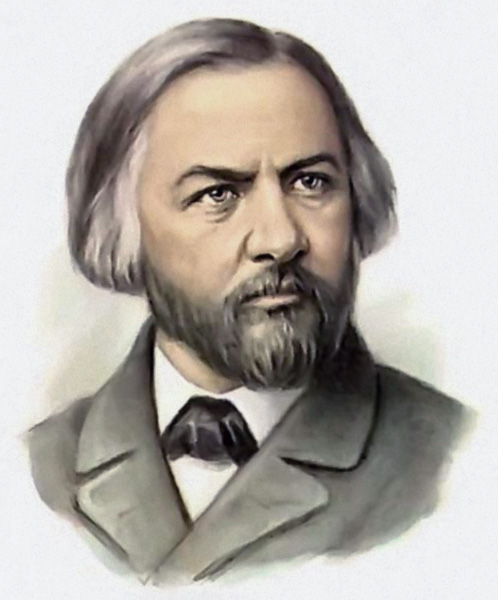
Mikhail Ivanovich Glinka
Anton Rubinstein
In 1859, Grand Duchess Yelena Pavlovna (1807-1873) founded the Russian Musical Society in order to bring the music in Russia at a higher level and to create opportunities for music education. She did it together with her protégé Anton Grigorevich Rubinstein (1829-1894), who founded influential conservatories in Moscow and Saint Petersburg with his brother Nikolay Grigorevich (1835-1881).

Anton Grigorevich Rubinstein
The Group of the Mighty
In the second half of the 19th century, Glinka's attempts to stop imitating European music were continued by a group of composers who became known as the Могучая Кучка [Moguchaya Kuchka] or Group of the Mighty. The group consisted of Mily Alexeevich Balakirev (1837-1910), Aleksandr Porfiryevich Borodin 1833-1887), Modest Petrovich Musorgsky (1839-1881), César Antonovich Cui (1835-1918) and Nikolay Andreevich Rimsky-Korsakov (1844-1908).
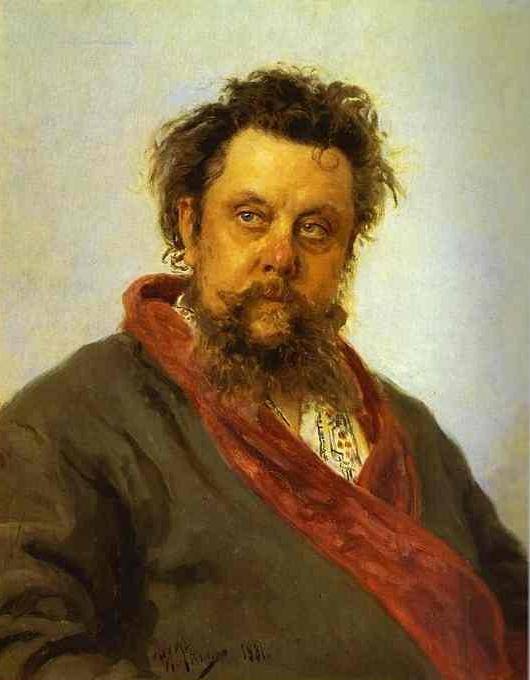
Modest Petrovich Musorgsky
They wanted to challenge the conservatism of the Russian Musical Society with a large number of works that were thematically based on Russia's history and legends, and musically on the folk music and religious music. Perhaps the most famous works were the symphonic suite Sheherezade by Rimsky-Korsakov, the opera Boris Godunov by Musorgsky and the opera Prince Igor by Borodin.
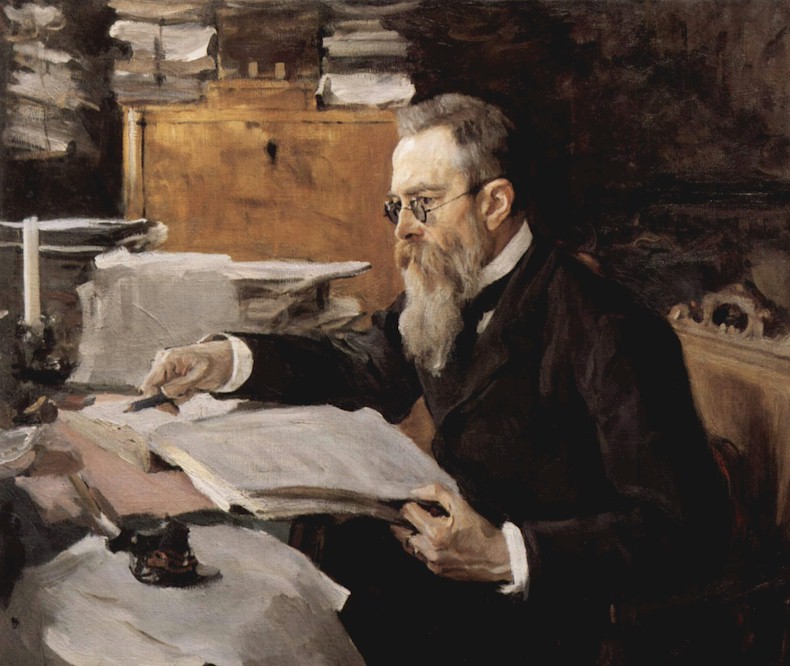
Nikolay Andreevich Rimsky-Korsakov
Pyotr Tchaikovsky
Someone operating outside of this group was Pyotr Ilyich Tchaikovsky (1840-1893), who wrote a large number of symphonies, operas and ballets which were closer to the Western music. Among his famous works are the ballets Swan Lake, The Sleeping Beauty and The Nutcracker. In Chapter 4 of The Master and Margarita, Bulgakov mentions Tchaikovsky's opera Eugene Onegin when Ivan Bezdomny is chasing Woland's gang.
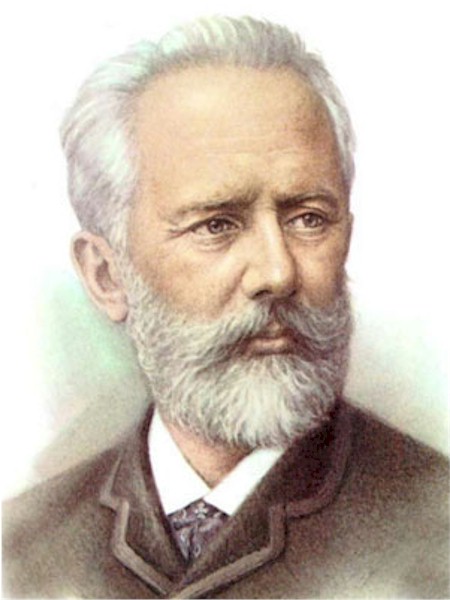
Pyotr Ilyich Tchaikovsky
At the end of the 19th century, the generation of Tchaikovsky and the Group of the Mighty found its successors in Sergey Vasilievich Rakhmaninoff (1873-1943), a pianist and composer who emigrated to Germany in 1906, Aleksandr Konstantinovich Glazunov (1865-1936), who emigrated to Paris in 1928, and innovator Aleksandr Nikolaevich Skryabin (1872-1915), who emigrated to Switzerland in 1903, but returned to Russia in 1909.
In the 20th century, Russia was still having more influential musicians and composers, although the Soviet regime suppressed both the music and its performances. Many artists and composers emigrated to the West, some did it voluntarily, others under pressure. But the work of the emigrants was still highly appreciated by the public.
Igor Stravinsky
Igor Fyodorovich Stravinsky (1882-1971), probably one of the most renowned Russian composers of the 20th century, emigrated permanently in 1920 after he had composed three famous works: the ballets The Firebird, Petrushka and Le Sacre du Printemps.
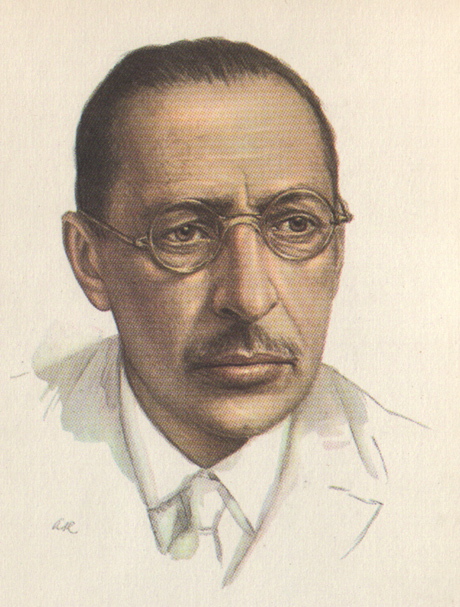
Igor Fyodorovich Stravinsky